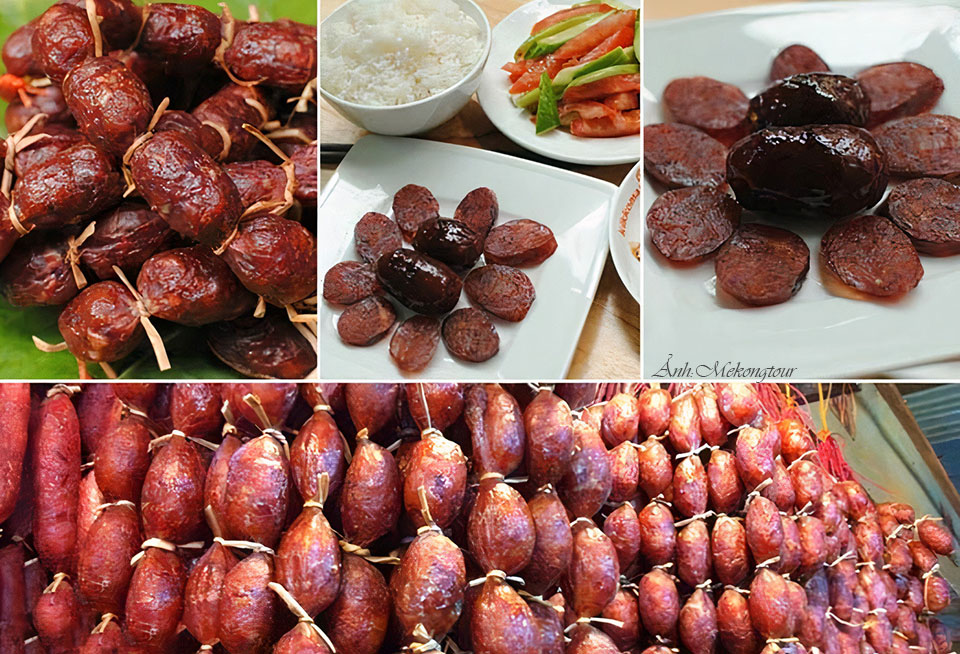In An Giang Province, visitors can see attractive red sausages being dried in the sun in the yards of houses, a popular specialty in the Mekong Delta province. The Cham ethnic people in the province who created this delicacy call it “tung lo mo.”
In the Cham people’s language, “tung” means intestine, while “lo mo” means cow. In fact, tung lo mo is a type of sausage made by stuffing beef and caul fat into the intestines.
“Tung lo mo” is how the Cham ethnic people, who are Muslims, preserved beef a long time ago.
Muslims choose fresh beef to make the specialty, but before that, they perform a ritual to ask God before slaughtering a cow.
The cow’s intestines are cleaned carefully and dried in the sun to remove the odor.
The filling includes beef and caul fat. Local cooks often use beef from the thighs and muscles or lean beef dissected from the bones. The cuts of beef are cleaned and marinated with ginger to remove their odor.
Besides, caul fat is indispensable as it keeps the beef tender and juicy. The quantity is often 80% beef and 20% caul fat. The mixture of minced beef, caul fat, pepper, and some basic spices is stuffed into the intestines.
The stuffed intestines are then tied into sections of some 10 centimeters before being exposed to the sun. After three days, tung lo mo is ready to be eaten.
Tung lo mo can be steamed, grilled over charcoal, fried, or stir-fried with vegetables. However, grilled tung lo mo is the best. Softness, the spicy flavor of pepper and a slight crispness are what food lovers experience when they dig into grilled tung lo mo.









